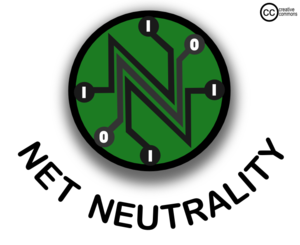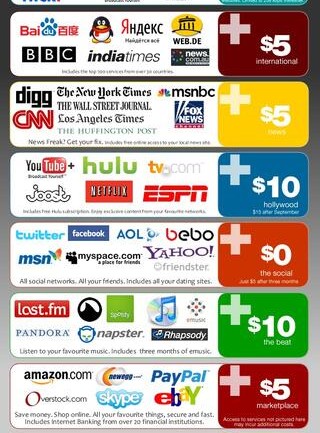“People should not be afraid of their government; it is governments who should be afraid of their people.”
– Alan Moore, V for Vendetta
Technology in the modern age is moving at the speed of light where those of us working in the industry struggle to keep up with the constant progress and changing regulations. How is a government official expected to
be able to keep up with these same technological trends and advancements to impart effective legislation when that isn’t even the primary function of their job? Yes, they can consult industry experts, but as we have witnessed so often in the modern age, the person that ends up leading a government body isn’t always the most qualified individual, and is often someone who will stir up the least amount of controversy in order to expedite appointment confirmation through the two houses of Congress.
This governmental analysis gets us to one simple point: those making the legislation when it comes to technology don’t seem to be the most informed individuals about the impact of their rulings. Once their decisions have been made how long is it going to take to clean up any mess that results because of a lack of understanding and foresight? The answer is potentially quite a long time.
Our governmental design was based on that of electing individuals to represent the desires of the masses. One of the common comparisons for our design is that of the U.K. In the United Kingdom they have the House of Commons and the House of Lords but there is one fundamental difference between the two systems that I would estimate is widely misunderstood by residents of the US in that the House of Lords is not a voting house.
The British Parliament has one voting house that represents the people in the House of Commons, but becoming a member of the House of Lords requires an appointment and is generally given to people who are considered experts in their field. This means that as legislation is being developed the House of Lords is essentially an advisory board that can tell the House of Commons what the impact of their decisions will be on industry, the environment, and the people, but that doesn’t mean the House of Commons has to listen. So, can someone please explain to me where this educated body of individuals to provide information is located in the U.S.?
Our Appointed Officials and the Internet
This year two decisions have been passed down by appointed officials in the FCC. This is the government entity designated to regulate all aspects of communication in the United States. It is also an agency currently in the process of trying to modernize itself to keep up with emerging technology. When the agency determining rules and regulations is made up of a group of individuals, most of whom have limited to no experience working in the fields which they are regulating, how can we expect the resulting decisions to take into account all angles of who will be affected?
The two potentially controversial decisions the FCC has ruled on this year were regarding net neutrality and internet radio. If the current statuses of both decisions remain it would seem they appear to be setting up road blocks for technological progress.
When it comes to net neutrality they have been hindered by a ruling in the court system (another governing body that doesn’t seem to fully understand the modern technology) that stated the FCC didn’t have the authority to regulate how an Internet Service Provider dealt with the information passing across its network. This is due to the fact that “in 2002 the FCC said that the broadband internet service is more than just a transmission service; the transport of data was integrated with content.” This meant that FCC would have to reclassify the internet to place broadband service providers under the same utility umbrella as those of phone service or electricity, making regulations less stringent.
 There’s no better example for the FCC’s struggle to enforce regulation than the recent developments with Comcast. A few years back Comcast, a cable television and internet service provider, decided that it wanted to purchase a major national network in NBC. This seems like a major conflict of interest to have a company be both the content creator and the infrastructure provider to distribute that content, but as we know now approval was granted. However, there were conditions to this purchase. One of which was that Comcast was required to sign an agreement that required them to abide by any regulations on net neutrality that the FCC would pass regardless of any court rulings. Yet, just two months ago one of the major news stories was how Comcast customers were complaining about how their ability to stream Netflix was being hindered by the network provider. In response, Netflix agreed to pay Comcast a premium cost to ensure that their data would reach their customers without being throttled down and suddenly there was no longer an issue.
There’s no better example for the FCC’s struggle to enforce regulation than the recent developments with Comcast. A few years back Comcast, a cable television and internet service provider, decided that it wanted to purchase a major national network in NBC. This seems like a major conflict of interest to have a company be both the content creator and the infrastructure provider to distribute that content, but as we know now approval was granted. However, there were conditions to this purchase. One of which was that Comcast was required to sign an agreement that required them to abide by any regulations on net neutrality that the FCC would pass regardless of any court rulings. Yet, just two months ago one of the major news stories was how Comcast customers were complaining about how their ability to stream Netflix was being hindered by the network provider. In response, Netflix agreed to pay Comcast a premium cost to ensure that their data would reach their customers without being throttled down and suddenly there was no longer an issue.
The key part of this situation was that Comcast had found a loophole in their agreement with the FCC. The data being passed across their networks was being treated just the same as other data, but because the data was originating on someone else’s network backbone Comcast was able to alter the speed at which the data was moving into their network. This meant that they were abiding by the rule the FCC had placed on them because the net neutrality regulations were only applying to data passing across network infrastructure that they controlled, even if the data wasn’t being treated equally across the whole stream.
The FCC has since come up with what they feel was a viable alternative to an open internet by allowing the ISPs to provide a “fast lane” for data and charge the content providers a premium to make sure their information is not throttled down to the customers. This rule is now open to public comment until September, and if you have concerns about it the FCC is allowing the public to file their thoughts on the matter here: http://www.fcc.gov/comments Protecting and Promoting the Open Internet. This is your chance to voice your concerns on the record with the FCC, please take advantage of it.
Given how engrained use of the internet is in the everyday lives of people throughout the world, the U.S. is being set up to fall even further behind other countries in the development of their broadband networks and the access to information for its people.
Our Appointed Officials and Radio
The other FCC ruling was on how internet radio differs from broadcast radio. This was something that the National Association of Broadcasters was requesting because the disparity between how these two options are  regulated is still extremely wide.
regulated is still extremely wide.
Looking at the two options for what they are, though, we find that both are ways for consumers to receive entertainment or informational media in their homes, offices, and now even in their cars. The ruling that the NAB was asking to be reviewed was whether or not these internet broadcast stations present “meaningful local competition.” The end result from the FCC was the following:
“NAB failed to demonstrate that this increased interest [in broadband radio] was at the expense of broadcast radio listening or that these alternative platforms were meaningful substitutes for broadcast radio…though recent data suggest that a significant portion of adult U.S. broadband households (42 percent) listen to Internet-delivered audio programming, we note that millions of U.S. households continue to lack broadband connections…Thus, we tentatively conclude that Internet-delivered audio programming is not yet a meaningful substitute for broadcast radio listening for most listeners.”
Perhaps it’s just me, but this is a ruling that sounds a lot like someone who understands what the current facts of the situation are but is short changing the circumstances around why someone would even ask that the situation be reviewed.
With this ruling the FCC is stating that the internet radio stations are not true competition for broadcast radio because they cannot facilitate a local market as well. Given the rate at which technology evolves, the ability to customize the music to your own personal tastes by artists, style, and even switch those customized stations based on your mood, how is this not competition? Internet radio stations like Pandora, Spotify, iRadio, and Beats are stealing the ears of the consumers away from traditional broadcast radio. With the ability to customize as well as pay a small monthly fee to get commercial free music of your choosing throughout your day, it can be easy to make the leap as to how this is going to alter the number of people tuning in.
The scarier part of the quote above to me is that the FCC recognizes that there are millions of U.S. households that lack a broadband connection and yet they are moving forward with a net neutrality solution that will actually create more discrepancy between the haves and the have nots.
Reactive NOT Progressive
With both of these scenarios we find that the regulatory agency for all things broadband, broadcast, and wireless is failing to get ahead of the problem and explain what needs to be done to benefit those they are there to protect – the people. As opposed to seeing the trends and the future of where the evolution of technology is going and then consulting experts in the fields, in these instances the FCC has elected to actively come to the conclusion that they will find an alternate solution that will do more damage than good in the long term or take an approach of “we don’t see this as a problem yet, so we’re not going to prepare any new rules or regulations to prevent issues.”
The path to how these 5 voting members of the FCC rose to positions of power can be easily tracked. Some of these people were previously high level executives in related industries while others rose through the ranks within the FCC. But why is it that they are taking the shortsighted and reactionary approach with how to regulate and move the communications industry forward as opposed to being proactive and laying the groundwork for the future?
In one case they were held back by the decisions of the previous voting FCC members, which were then upheld by the Appellate Court. Which brings to mind the question for me, where is the public advocacy for our industry? Additionally, where is the personal responsibility of our leadership to find full, comprehensive understanding of the issues and the results before making a decision?
Technology is going to continue to evolve and there must be people in positions of power that have the ability to actually do something about making sure that the world outside of these industries (IT, AV, Broadcasting, Recording, etc.) have an ally in the government that can help pave the way for continued progress and success.
I’ve spent a lot of time traveling around the U.S. visiting some brilliant technological minds in the AV industry. There are dedicated men and women around this country who have devoted their lives to moving this industry and the associated technology forward.
We may never see the consideration paid to the AV industry by our leadership because that would mean our government would have to admit that it doesn’t know something and was willing to consult experts in the industry to advise them as to the affect their decisions will have. But consider me naïve and hopeful that one day our government will actually get back to working for its people and start doing things that benefit the population. If not, then we may be facing a bottleneck of epic proportions that could cause our country to fall further behind other world leaders in technological development.
It is going to be up to those of us in the industry to inform the general public about these circumstances. Those of us in the field have the knowledge and must share it. The more information is shared the stronger we become.





Pingback: Net Neutrality Posts | Sound Reason
Pingback: http://cloudsec.tumblr.com